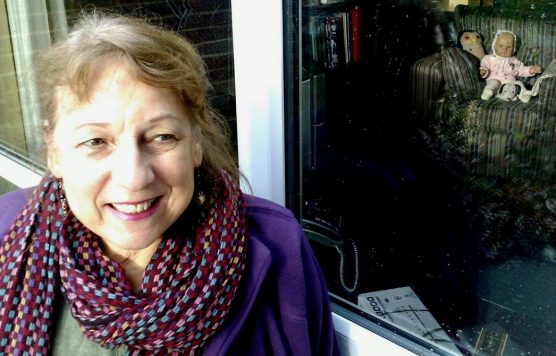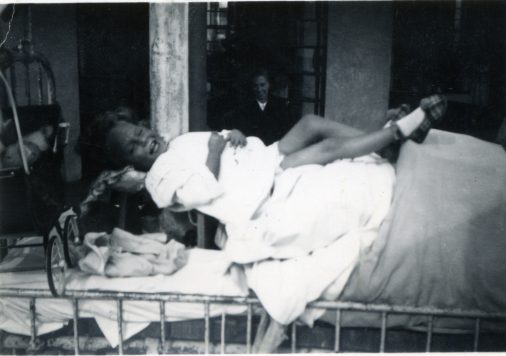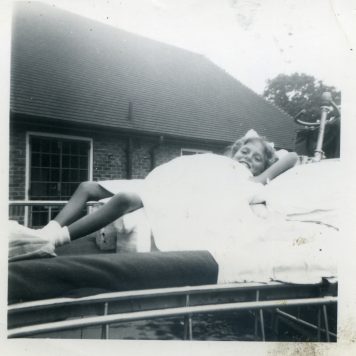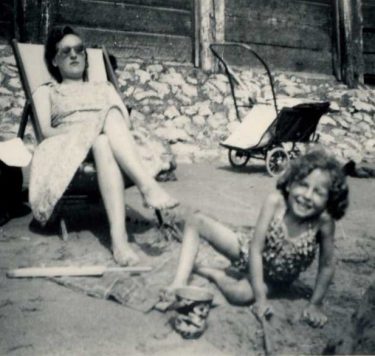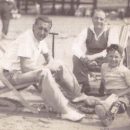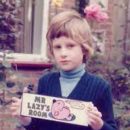Continuing Education
Deborah Sowerby: Discovering the Social Model
Deborah was born in 1949 in London. She spent some time in hospital as a young child and then was sent to a residential special school in East Sussex at the age of five, staying there until she was sixteen and then going on to Art School.
More from
Deborah Sowerby
Here Deborah describes the impact of returning to study in later life via the Open University.
https://howwasschool.allfie.org.uk/wp-content/uploads/2013/10/discovering-the-social-model.mp3
So here I was at about forty-one-ish. It was fantastic and I, from that point really, over the course of the nine months or so a year, decided that I was a disabled person, and that I didn't have to put myself down, that I didn't have to limit myself, that it was a question of removing the barriers and it was down to other people's attitudes. And I could see it it made perfect sense, no problem there. And then I could be open about it, that was the best thing that happened, was that I could now be open about what had happened - my childhood, my education, disability, all of it. I could talk about it selectively, but I could talk about it and it wasn't something that I needed to hide any more, that was the biggest, biggest change.
Yeah it was phenomenal, it was absolutely phenomenal, and the key to it, apart from the learning and all the the theory, and the coursework and all the modules that was so brilliant, was seeing two disabled women, running a training session, being figures of authority, what fantastic role models. I thought 'I don't have to keep myself down. I don't have to be this pathetic failure anymore, if I want to achieve and start having some power I can have some'. So that's what that did for me.
Transcript
So that was, you know it turned out to be brilliant, but so this course was basically good on two counts really, firstly it was an academic level course, so you know, writing, reading, doing the assignments, some tutor support in those days and some tutorials in those days, and, so that was great, and an exam which was petrifying and to this day I don't do exams very well. So from that point of view it got me started, and I enjoyed it. I enjoyed learning, I mean in fact, enjoyed just doesn't touch it, I thought it was brilliant, but the subject matter was the big thing because I discovered the Social Model of Disability, and for the first time things started to fall into place, about my childhood experiences.So here I was at about forty-one-ish. It was fantastic and I, from that point really, over the course of the nine months or so a year, decided that I was a disabled person, and that I didn't have to put myself down, that I didn't have to limit myself, that it was a question of removing the barriers and it was down to other people's attitudes. And I could see it it made perfect sense, no problem there. And then I could be open about it, that was the best thing that happened, was that I could now be open about what had happened - my childhood, my education, disability, all of it. I could talk about it selectively, but I could talk about it and it wasn't something that I needed to hide any more, that was the biggest, biggest change.
Yeah it was phenomenal, it was absolutely phenomenal, and the key to it, apart from the learning and all the the theory, and the coursework and all the modules that was so brilliant, was seeing two disabled women, running a training session, being figures of authority, what fantastic role models. I thought 'I don't have to keep myself down. I don't have to be this pathetic failure anymore, if I want to achieve and start having some power I can have some'. So that's what that did for me.
Explore more
Explore stories by theme or view the timeline of significant events in education for disabled people
![How Was School? [logo]](https://howwasschool.allfie.org.uk/wp-content/themes/hws-base-theme/assets/img/allfie-logo-original.svg)
